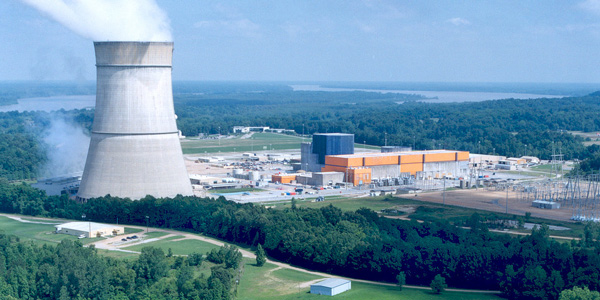By Amanda Durish Cook
FERC last week rejected separate rehearing requests from both sides in a dispute between the Louisiana Public Service Commission and System Energy Resources Inc. (SERI) over the return on equity rate for the company’s Grand Gulf Nuclear Station (EL18-142).
Entergy subsidiary SERI’s rehearing request centered on the question of whether FERC could legally probe the Grand Gulf ROE in two separate proceedings and set two separate 15-month refund periods.
FERC last August set to settlement procedures the Louisiana PSC’s complaint that the ROE in the unit power sales agreement (UPSA) formula rate for calculating the Grand Gulf costs billed to Entergy’s operating companies is unjust and unreasonable. The Louisiana regulator contested SERI’s capital structure and the depreciation rates included in the ROE. (See FERC Sets La. Entergy Complaint for Settlement.)
SERI owns 90% of the 1,400-MW Grand Gulf plant in Port Gibson, Miss., and sells the plant’s output under a FERC-regulated wholesale rate to Entergy’s Arkansas, Mississippi, Louisiana and New Orleans subsidiaries under the UPSA.
Regulators in Arkansas and Mississippi also claimed in 2017 that the 10.94% ROE used by SERI in its formula rate for energy sales from Grand Gulf is outdated and overcharges customers (EL17-41). (See FERC Opens Proceeding over Entergy Nuclear Power Sales.)
FERC put both complaints to settlement proceedings in order to reset SERI’s ROE, equity ratio and depreciation rates to just and reasonable levels. Because of the complaints’ similarities, the commission eventually consolidated them into one settlement process.
But SERI contended that FERC was in breach of the Federal Power Act because it set a second refund date for the Louisiana complaint, saying the law “precludes refunds for more than a 15-month period absent dilatory behavior on the part of the utility.”
The commission pointed out that it has yet to make any final determinations in the case and could dismiss a request for rehearing on that detail alone.
But it offered a deeper explanation for its denial of the premature challenge, saying “even if we were to consider SERI’s request for rehearing on the merits, we would deny it.”
The commission said it was not circumventing the 15-month refund period requirement because the two complaints were filed separately and, as such, the limitation applies separately to each complaint.
It also noted it is free to investigate the same ROE in two different proceedings and that SERI was incorrect in its assumption that the commission should have dismissed the Louisiana PSC complaint because it didn’t contain “new claims or changed circumstances sufficient to justify an additional proceeding.”
Instead, FERC pointed out, the two complaints are based on financial data from different time periods, and as such, are based on different factual records. According to the Louisiana PSC, the 2017 docket did not reflect more recent discounted cash flow data now available.
“Although the two complaint proceedings have been consolidated for purposes of hearing and settlement judge procedures, the commission may or may not reach the same conclusions regarding SERI’s ROE with respect to each complaint,” FERC said.
It also noted it has “previously allowed successive complaints when presented with new analysis.”
In the same order, FERC also denied the Louisiana PSC’s request to rehear the federal commission’s dismissal of the PSC’s complaint regarding SERI’s use of its own capital structure — rather than that of its parent Entergy — for setting the ROE for Grand Gulf to put the issue to settlement proceedings.
The PSC had conceded that its original complaint failed to apply FERC’s three-part test for determining the independence of an affiliate’s capital structure from that of its parent or to show that the test was inapplicable in SERI’s case. But it argued that its amended complaint was sufficient to support SERI’s adoption of Entergy’s capital structure or a structure appropriate for a utility with low risk.
In response, FERC pointed out the PSC admitted the commission did not err in its August 2018 order.
“There is thus no basis upon which to grant rehearing,” FERC wrote. “Moreover, the commission has already issued an order in response to the Louisiana commission’s amended complaint, establishing additional hearing and settlement judge procedures. We decline to address that matter further here.”





